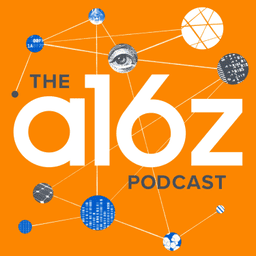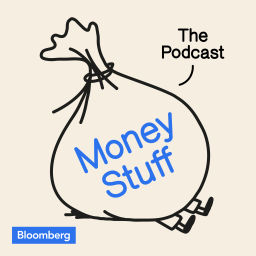
by Mitch Lasky / Blake Robbins
Gamecraft is a limited series about the modern history of the video game business. Beginning in the early 1990's, the video game business began a radical transformation from a console and PC packaged goods business into the highly complex, online, multi-platform business it is today. Game industry legend Mitch Lasky and game investor Blake Robbins go on a thematic tour of the last 30 years of gaming, exploring the origins of free-to-play, platform-based publishing, casual & mobile gaming, forever games, user-generated content, consoles, virtual reality, and in-game economies across the eight episodes of Season 1. In Season 2, Mitch and Blake are back with a new series analyzing the state of the video game business in 2024. They start with a macro view of the current business, before looking at some hot topics in gaming: the rise of powerful independent game studios, emerging markets for games around the world, how innovations in artificial intelligence will change game creation, and the renewed importance of intellectual property in the game business.
Language
🇺🇲
Publishing Since
1/11/2023
Email Addresses
1 available
Phone Numbers
0 available

April 9, 2025
<p>Mitch and Blake discuss the mobile duopoly in which Apple and Google exert extraordinary power by tying their app stores to hardware and software platforms. They warn that the inflexible and expensive distribution systems on iOS and Android could be models for future PC and console distribution systems.</p> <p>They briefly review the history of mobile distribution and mobile technology innovation from the late 90's to the present, and what that development meant for content on the platforms. They discuss the similarities between the JAMDAT and Scopely content portfolio strategies as responses to their very different distribution situations. </p> <p>They discuss in depth the often perverse incentives that are created by platform dynamics and distribution expenses, which lead to content and customer acquisition strategies that are designed to maximize return on invesment rather than quality entertainment. Blake explains the particularly dark advertising strategies of companies like Playrix that intentionally deceive users.</p> <p>They make the case for government regulation as perhaps the only solution to the current mobile distribution cost gouging problems, given the market power of the two duopolists, and explain why sideloading isn't a simple solution to the distribution problem. Finally, they discuss the increasing similarities between the iOS App Store and Steam, and why that is a frightening development.</p> <p><strong>Show Notes:</strong></p> <p><a href="https://www.youtube.com/watch?v=VQKMoT-6XSg">Macworld 2007 iPhone Announcement </a></p> <p><a href= "https://howtomarketagame.com/2024/01/29/do-wishlists-matter-any-more/"> Do [Steam] Wishlists Matter Any More?</a></p>

April 2, 2025
<p>Mitch and Blake kick off Season 3 of the podcast with a high-level look at the current moment in the video game business, critiquing both the idea that the business is cyclical and we are in a downward phase of the cycle (and the naïve notion of "survive 'till '25"), as well as the idea that the business has simply matured, suggesting we are in a new phase of low growth and consolidation.</p> <p>Instead, they propose a framework for thinking about the games business that argues for the continuous interplay of three innovation forces: content, distribution, and technology. They outline how each of the three forces have played out historically, and offer some examples of the discontinuous inflections that have occured along these three vectors of innovation. They also try to explain why innovation is currently stalled, and how that creates a downward spiral that affects valuations, risk-taking, and ultimately what kinds of games get made. </p> <p><strong>Show Notes:</strong></p> <p><a href= "https://www.matthewball.co/all/stateofvideogaming2025">Matthew Ball's state-of-the-games-business deck</a></p> <p><a href="https://superjoost.net/playlist">Joost van Dreunen's newsletter </a></p> <p><a href="https://en.wikipedia.org/wiki/Live_service_game">Live Service Games</a></p> <p><a href= "https://independent-magazine.org/2022/10/22/the-demise-of-mid-budget-cinema/"> The Demise of Mid-Budget Cinema</a></p> <p><a href="https://support.apple.com/en-us/117767">Sideloading apps on IOS</a></p> <p><a href= "https://arstechnica.com/gadgets/2025/03/discord-heightens-ad-focus-by-introducing-video-ads-to-mobile-apps-in-june/"> Discord's new ad units</a></p>

March 13, 2024
<p>In their final episode of Season 2, Mitch and Blake take on the complex and highly speculative topic of the impact of recent improvements in artificial intelligence on the games business. Your hosts acknowledge that the sector is moving so quickly that this episode could be obsolete by the time it airs, and warn that it's difficult at this early moment to look too far into the future.</p> <p>Mitch offers a loose framework for thinking about AI in game production, mapping this framework to specific areas of game creation and publishing that could be effected by AI. They discuss in particular the disruption that could be caused by massively increased efficiencies in the creative pipeline, the impact on the game labor force, and how the incumbents may be more vulnerable in games than in other software spaces. Mitch tells the story of his first meeting with then-game developer Demis Hassabis (today the CEO of Google DeepMind). Mitch and Blake look at the unpleasant prospect of what behavioral analysis, population clustering, and dynamic ad personalization may mean for the dark arts of paid customer acquisition.</p> <p>After a look at what AI-enabled game creation might augur for distribution platforms already choked with content, they look at the bull and bear cases for game AI, and its implications for the future of the games business.</p>

Ben Gilbert and David Rosenthal

Colossus | Investing & Business Podcasts

BG2Pod

Andreessen Horowitz

Ben Gilbert and David Rosenthal

All-In Podcast, LLC

David Senra

Colossus | Investing & Business Podcasts

Conviction

Ted Seides – Allocator and Asset Management Expert

Bloomberg

Sequoia Capital

Deconstructor of Fun

The Verge

Bloomberg
Pod Engine is not affiliated with, endorsed by, or officially connected with any of the podcasts displayed on this platform. We operate independently as a podcast discovery and analytics service.
All podcast artwork, thumbnails, and content displayed on this page are the property of their respective owners and are protected by applicable copyright laws. This includes, but is not limited to, podcast cover art, episode artwork, show descriptions, episode titles, transcripts, audio snippets, and any other content originating from the podcast creators or their licensors.
We display this content under fair use principles and/or implied license for the purpose of podcast discovery, information, and commentary. We make no claim of ownership over any podcast content, artwork, or related materials shown on this platform. All trademarks, service marks, and trade names are the property of their respective owners.
While we strive to ensure all content usage is properly authorized, if you are a rights holder and believe your content is being used inappropriately or without proper authorization, please contact us immediately at [email protected] for prompt review and appropriate action, which may include content removal or proper attribution.
By accessing and using this platform, you acknowledge and agree to respect all applicable copyright laws and intellectual property rights of content owners. Any unauthorized reproduction, distribution, or commercial use of the content displayed on this platform is strictly prohibited.